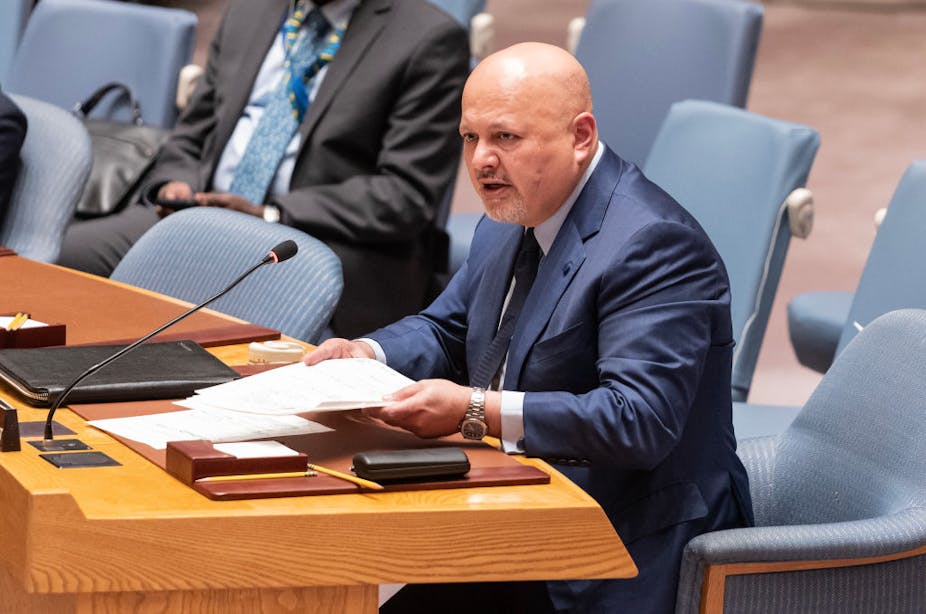Domestic trials of genocide, crimes against humanity and war crimes are considered quicker, cheaper and more responsive to victims’ needs than the International Criminal Court’s trials in The Hague.
But prioritising domestic accountability for the most serious crimes has both advantages and disadvantages.
In a recently published book, International Criminal Tribunals and Domestic Accountability: In The Court’s Shadow, I analyse the complex relationship between international and domestic accountability initiatives. I also look at how an ongoing shift from international to domestic trials has impacted the global fight against impunity.
I drew on the experiences of three African countries – the Democratic Republic of Congo (DRC), Rwanda and Sierra Leone. I argue that national justice systems are likely to be the primary forum for trials of serious crimes in the foreseeable future. However, there’s a growing tendency to romanticise what can be accomplished at the national level. Meanwhile, the ability of international criminal tribunals to serve the wider cause of human rights is being downplayed.
Going forward, I hope to spur a more nuanced conversation about how international and domestic justice should work together.
Domestic justice
International criminal justice is still associated with high-profile cases. One of these is the International Criminal Court’s recent arrest warrant against Russian president Vladimir Putin.
However, national courts now prosecute far more people for war crimes, crimes against humanity and genocide. This is true for most countries. Whether it be in the DRC, Ukraine or Colombia, the International Criminal Court plays a backup role. And it’s had only a handful of convictions over 20 years.
Read more: Putin and the ICC: history shows just how hard it is to bring a head of state to justice
This is one of the reasons that domestic justice is now celebrated as quicker, cheaper and more victim-friendly. Just two decades after the International Criminal Court was created, many stakeholders now argue that “the future of international criminal justice is domestic”.
To better understand the relationship between international and domestic trials, I studied three African cases. I analysed the International Criminal Court’s work in the DRC, the Special Court for Sierra Leone and the International Criminal Tribunal for Rwanda.
Drawing on more than 200 interviews with civil servants, magistrates, diplomats and civil society representatives, I assessed what kind of “shadow effects” the three international tribunals had on prosecutions of serious crimes at the national level.
My findings confirm that the pursuit of accountability for serious crimes is complex. One shouldn’t expect quick and simple fixes when thousands of people suffer serious human rights violations. But based on 30 years of international criminal justice interventions on the African continent, I identified four trends. These reveal opportunities and challenges in the global fight against impunity.
Trends shaping international interventions
First, the numbers illustrate the declining importance of international trials. The Rwanda and Yugoslav tribunals indicted hundreds of people starting in the mid-1990s. Sierra Leone’s special court prosecuted 13 suspects in the 2000s. Today, the International Criminal Court handles between one and four international cases per country.
Second, with international criminal tribunals facing criticism in the 1990s and 2000s, the international community shifted attention to state-level accountability processes. As the number of international trials decreased, domestic prosecutions increased in some countries. But the track record is mixed. Hundreds of national trials in Rwanda and the DRC can be contrasted with the (near) absence of cases in Sierra Leone.
Read more: Prosecution or compensation? What Kenyan choices tell us about international justice
Third, there’s still little evidence that domestic justice performs better than international criminal tribunals. Donors and NGOs increasingly prioritise capacity-building initiatives for national magistrates and attorneys. But they avoid the political dimensions of state-led justice efforts. The difficult questions they need to address include: why are some perpetrators prosecuted domestically but not others? Which national trials are unfair? What effects do selective national prosecutions have on nation-building?
For instance, hundreds of trials before Congolese mobile courts are rightly celebrated. But the Congolese army has used international support to consolidate its power at the expense of the civilian justice sector. Scholars have expressed similar concerns about the unintended consequences of Rwanda’s domestic justice process.
Fourth, the International Criminal Court was expected to encourage a domestic reckoning with serious crimes by casting a “positive shadow” over national judges, prosecutors and attorneys. Instead, international prosecutors and judges in The Hague have often adopted risk-averse readings of their powers. And they have often ignored the work – good and bad – of their domestic counterparts. This practice may promote selective national prosecutions that entrench the (authoritarian) power of ruling elites in countries like the DRC, Central African Republic, Libya or Mali.
Way forward
There are two main takeaways. First, international criminal tribunals sometimes unintentionally cast an “authoritarian shadow” over domestic justice efforts. Second, too much emphasis on national trials may promote illiberal tendencies in some contexts. I encourage a more critical look at how international and domestic justice relate to one another. Simple formulas like “the future of international criminal justice is domestic” don’t always help.
But the book is an appeal for action rather than despair. It proposes strategies to overcome obstacles to domestic accountability. These include greater civil society engagement, cooperation with domestic law enforcement actors and trial monitoring.
Ultimately, the global fight against impunity remains a work in progress. The search for a balance between international and domestic accountability efforts will require further study.

